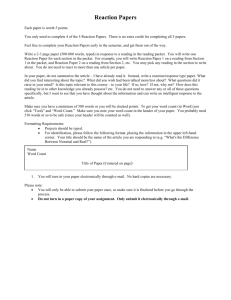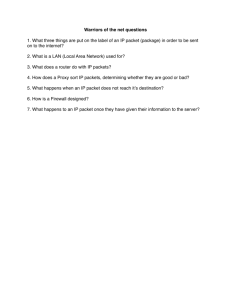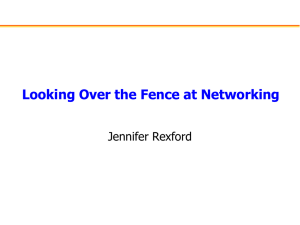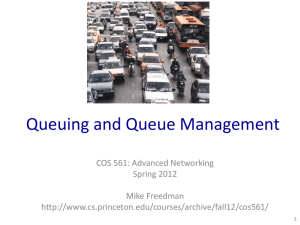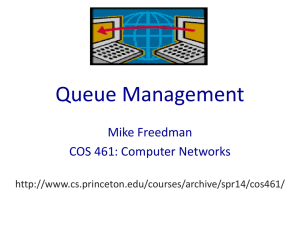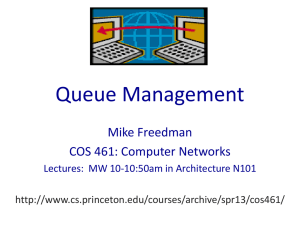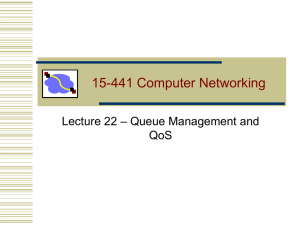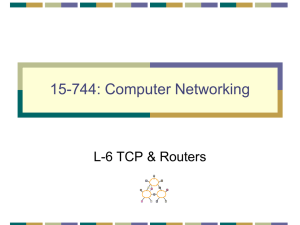بنك اسئلة6
advertisement
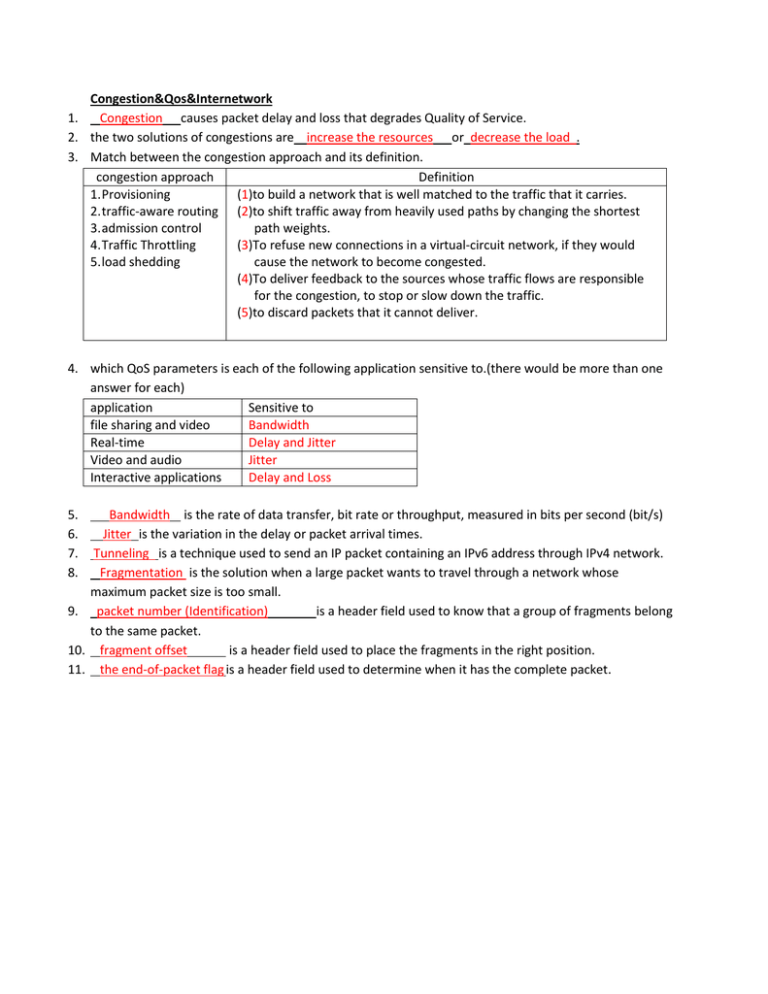
Congestion&Qos&Internetwork 1. Congestion causes packet delay and loss that degrades Quality of Service. 2. the two solutions of congestions are increase the resources or decrease the load . 3. Match between the congestion approach and its definition. congestion approach Definition 1. Provisioning (1)to build a network that is well matched to the traffic that it carries. 2. traffic-aware routing (2)to shift traffic away from heavily used paths by changing the shortest 3. admission control path weights. 4. Traffic Throttling (3)To refuse new connections in a virtual-circuit network, if they would 5. load shedding cause the network to become congested. (4)To deliver feedback to the sources whose traffic flows are responsible for the congestion, to stop or slow down the traffic. (5)to discard packets that it cannot deliver. 4. which QoS parameters is each of the following application sensitive to.(there would be more than one answer for each) application Sensitive to file sharing and video Bandwidth Real-time Delay and Jitter Video and audio Jitter Interactive applications Delay and Loss 5. 6. 7. 8. Bandwidth is the rate of data transfer, bit rate or throughput, measured in bits per second (bit/s) Jitter is the variation in the delay or packet arrival times. Tunneling is a technique used to send an IP packet containing an IPv6 address through IPv4 network. Fragmentation is the solution when a large packet wants to travel through a network whose maximum packet size is too small. 9. packet number (Identification) is a header field used to know that a group of fragments belong to the same packet. 10. fragment offset is a header field used to place the fragments in the right position. 11. the end-of-packet flag is a header field used to determine when it has the complete packet.

